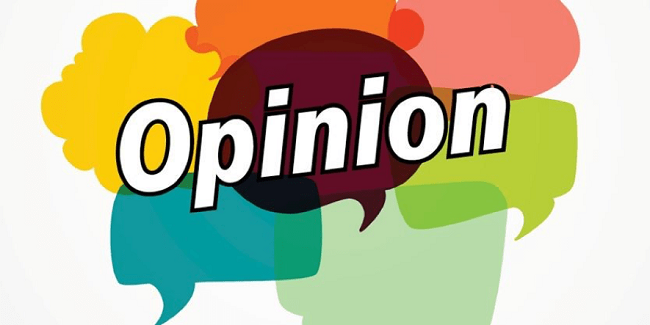THE positive actions of people in the position of power, including their alleged negative misdeeds, need to be judged only in the course of time. Most initiatives by leaders in power that are widely regarded as errors at early stage of their regime may seem good and better at a later period. For example, a laudable project proposed by a leader that is derided as a spectacular blunder in the course of its constructions, may end up as a national icon. Skeptics and doom-mongers’ reactions may condemn a lofty policy initiated by a leader as a blunder-in-the-making; such policy may be universally accepted after turning round to be a success. Almost always, as in the instances cited above, time will tell. Deciding whether a policy initiated by a particular political leader is to be deemed a miscue may arouse, unavoidably, underlying issues of culture and values. What a person gander as wholly blameworthy another will, perhaps, view it as highly desirable, even indispensable. People differ over what the minimum wage of workers should be, about whether students in the public institutions should pay very high tuition fees as their compeers in the private institutions, about increase in the rate of income tax, and about immigration policy.
Needless to say, issues such as those mentioned above will bring up intense and perfectly valid questions. However, the masses themselves are not in the position of taking sides on matters such as those, but they mostly focus on mistakes that are generally agreed to have been blunders in their own terms; occasions on which political leaders failed to fulfill their promised goals, irrespective of whether those goals would have been theirs. They tend to discuss issues of great importance to their society not as moralists but apologists. Their approach to issues is more often detached. At the same time, it should be readily acknowledged that, just as not all errors made by the leaders should be accounted blunders, leaders can fail in manners that do not in any way involve the committing of bad mistakes. They may just be unlucky. They may face hindrances that were unforeseen or unforeseeable. They may not actively goof but may lag in addressing challenges that ought to be tackled. It should be realized as a fact that sins of leadership, like the sins of individual all, can be sins of omission as well as commission, and failure on the side of a leader can be ongoing: chronic as well as acute. Observably, the people that have been holding the reins of power and government in the Nigerian political and military landscapes since independence in the year 1960have blundered from time to time.
It is however apposite to state that mistake on the part of military and political leaders across the globe is certainly nothing new. Notable leaders have been committing errors in governance ever since time began. A good example of blundering in government can be classically alluded to by referring to biblical experience when the Philistines’ leadership encouraged and fossilized Goliath to challenge a lone Israelite to single combat. They overrated the strength and military ability of Goliath and valued too low the power and skills of David as well as the Spiritual power of his saviour, the Lord of Hosts, the God of the armies of Israel. This is an all-time historical fact. The lesson derivable from this event of the past is that blundering into war as is evident in the above narrative arose out of the taking of a positive step, albeit one that is ill-advised, but resulted from a decision not to act in a certain manner even though the option of behaving in that way is readily available.

Errors by people in the positions of power, needless to say, mostly derive from a wide range of factors. A useful analogy for these factors can be discussed from those occasioned by mistakes that are primarily behavioural or human in character or those that are more institutional, systemic or cultural in character. Behavioural or human factors are those that are likely to be in action more or less anywhere and at more or less any period. Their results are mostly observable by all and sundry and universal in nature. Their traits can be traced to widely scattered regions of human existence, and can be observed with their effects in private sectors, and in government settings, in homes, neighbourhood meetings, social gatherings, workplaces, boardrooms and among trade unionists. The institutional, systemic and cultural factors are more precise in nature and they are mostly attached to specific periods and milieus. They can be located in corporate boardrooms, or in trade unionism, but almost certainly not in both, in the army, navy, air force, but certainly not in a fully voluntary organization, and so on and so forth. Patterns of behaviour that are regarded as mentally and physically healthy in one time or place, and which may be taken totally for the sake of it in that time or period, are likely to be seen as abnormal and even unconscionable somewhere else at another time. Truth to tell, nepotism and corruption, the chief opposite behavioural attitudes of negative human beings, are abominable in modern times in most positive climes of the world, but they are celebrated as normal occurrences, even obligatory, in our own modern day Nigeria and even in many African societies; a cause of feelings of sadness and sympathy.
Generally, the African leadership screws up so often. The leaders screw up more often than most citizens seem to realize. The strong feeling is that while most know about this, that or the other cock-up, they are by no means aware of the full range of them. One error of governance is heard, and then another, then another, without realizing the fact that there are myriads of them to be accounted for by random one-off sets of situations and they may really have common origins.In summation, the analogies above, with the coinage of the phrases“misdeeds of leaders and the led” are in apposition to car accidents that constantly happen at a particular road junction, the reason may be that the flaw lies not mainly with the individual drivers involved in the accidents, but with the design and designers of the junction. The general view is that our governments are prone to errors. The question is: are they more error-prone than they used to be? Are they more prone to making errors than the governments of other comparable liberal democracies? Both questions are relevant, but, alas, no one is yet in a position to answer either of them.
- Elebute is a Professor of Journalism, Media and Cultural Studies at the Hallmark University, Ijebu-Itele, Ogun State.
Read Also: Local govt: Supreme Court’s decision final — Soludo








